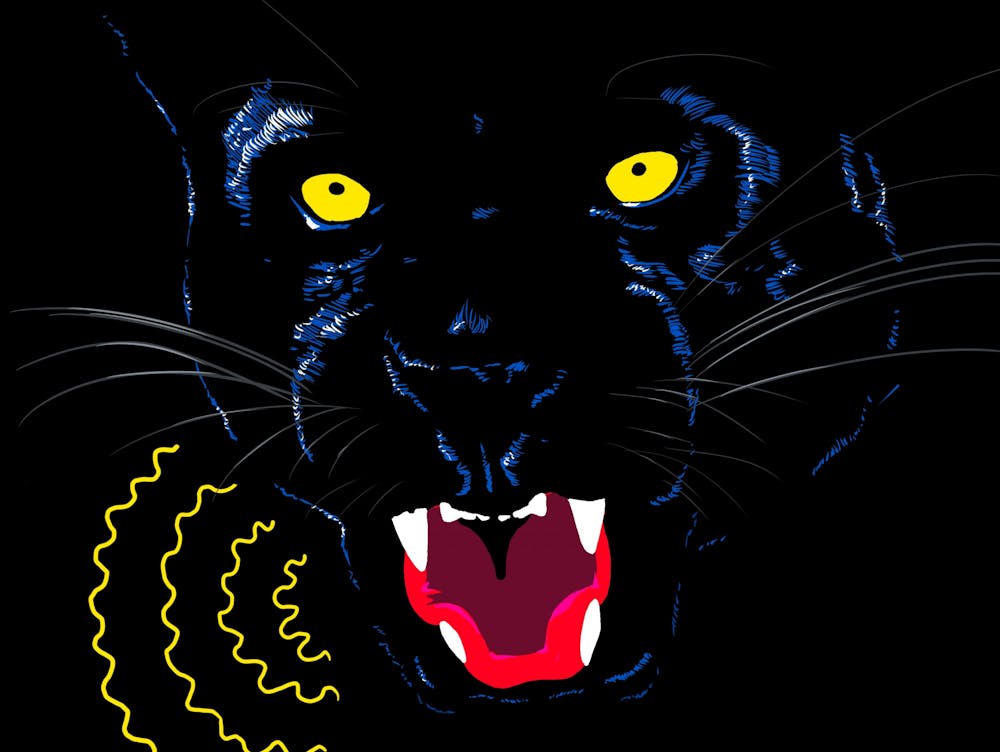In recent years, the world has watched closely as civil unrest has inspired protests around the globe. These protests in Hong Kong, Chile, Nigeria and across the U.S. have often resulted in armed, violent conflict between police and civilians.
Police favorability in the U.S. recently reached a record low. Prominent coalitions across the nation now call to defund or abolish local police departments entirely.
But this is not the first moment in history that civilians have clashed with the police. To understand this year's uprisings, we must first contextualize the Black Lives Matter movement with the broader history of civil rights struggles.
Katherine Bynum, an assistant professor of history at ASU whose research documents Black and Brown freedom struggles in the 20th century, said that despite police forces being a relatively new idea in the U.S., policing has existed in informal ways in the country's past.
"When we think about the origins of policing in the South we often think about slave patrols," Bynum said. "They were these informal militia groups essentially that were watching and surveilling enslaved people to make sure that they weren’t engaging in any sort of rebellion or elicit behavior.”
Luis Fernandez, a professor of justice studies who works in the field of criminology at NAU, co-authored an academic paper on police abolition in 2018 that gained popularity this summer when Black Lives Matter protests and calls to defund the police were at their peak.
Fernandez said in marginalized communities anti-police sentiment's origins trace back to the very existence of the police as an institution.
“The function of police is to maintain the social order,” he said. “If we’re talking about segregation, the function of the police is to maintain segregation because that segregation is a social order. If you’re being policed and the police are maintaining these unjust social situations, you’re always going to have this antagonistic relationship with police.”
Bynum said the U.S. was built on a foundation consisting of "policing and otherizing people of color," an idealization of "settler-colonialism."
Addressing and preventing racialized police brutality became a central tenet of many Black organizing efforts when the civil rights movement began in the 1950s. The Black Panthers, perhaps one of the most influential Black liberation organizations, began as an effort to “police the police.”
Even the National Association for the Advancement of Colored People got its start working to defend Black Americans from police discrimination.
“We don’t necessarily think of the NAACP doing things like that," Bynum said. "We think about them trying to register people to vote. We have often disconnected Black Power movements from the larger civil rights movements, even though they feed off of one another.”
Anti-police sentiment, however, is not historically exclusive to Black liberation struggles.
Bynum said Mexican communities were beginning to handle policing in the U.S. in different ways as they started to grow in the country in the 1920s and 1930s. Those communities eventually joined Black Americans in movements to combat police brutality in the 1950s and 1960s, acting as one of the "central components" of the Chicano movement.
The popular phrase “ACAB,” commonly used to mean “All cops are bas-----,” was likely born in labor movements in the U.K. where British police would crack down on union organizers and working-class strikers. Later, it was adopted by leftists in the punk rock scene and has become emblematic of today’s anti-police resistance.
The Stonewall riots, commonly referred to as “The First Pride,” was a violent confrontation between the police and the LGBTQ+ people of New York. Today, many LGBTQ+ activists criticize the police presence at Pride events, citing the police’s legacy of homophobic and transphobic violence.
“By the time we get to the 70s, so we’re talking about 50 years prior to BLM, the mobilization against police in this country has already been born and matured,” said H.L.T. Quan, an associate professor of justice and social inquiry at ASU, a filmmaker and a political theorist.
In her decades of studying and contributing to social movements, she has worked with many acclaimed activists including Angela Davis and Yuri Kochiyama.
“It isn’t just people of color that are victims of police abuse,” Quan said. “It’s poor people, homeless people, young white men, depending on how they look and how they’re profiled. So this is a serious social problem. It’s not a Black person’s problem, it’s not a particular group of people’s responsibility to address this. It’s all of our problem.”
Fernandez believes that the current uprisings in the U.S. reflect the new generation’s understanding of the intersectionality of issues of police brutality.
“There was a solidarity that arose between Black Lives Matter and Black people and the younger generation that’s growing up in a much more diverse environment,” said Fernandez. “This second wave of Black Lives Matter in the summer crossed class and race, meaning that it was an amalgamation of people. That makes it unique and strong.
“So long as there is police abuse, there will be movements against it.”
Reach the reporter at lexmoulton@gmail.com and follow @lexmoul on Twitter.
Like The State Press on Facebook and follow @statepress on Twitter.




